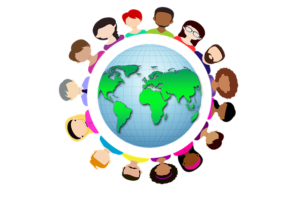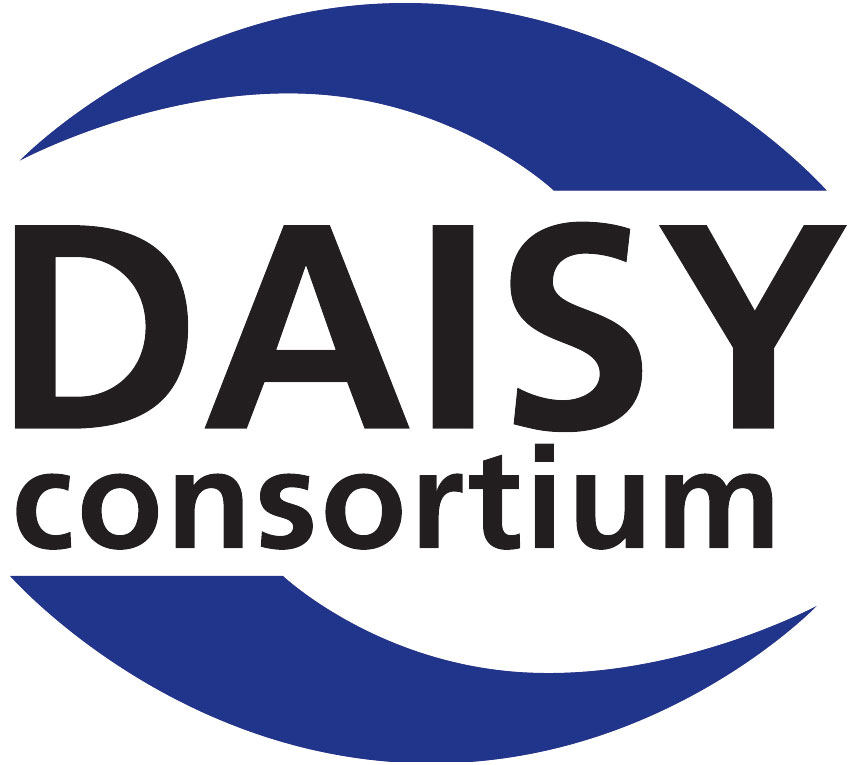 History of the Music Braille Production Network
History of the Music Braille Production Network
How it started
One of the ways in which the DAISY Music Braille Project is working to secure the future of music braille production and use is the development of a global Music Braille Production Network.
This Network is based on a proposal made by SBS (Lia Cariboni and Manfred Muchenberger), so that agencies can source, procure and provide music braille resources between each other in an efficient way. These resources could be for individual end-users and/or for library collections. The original SBS proposal has been worked up in collaboration with interested sector colleagues in the DAISY Music Braille Project.Trialling the network
Development timetable
- During 2021 we designed a process and prepared the resources needed for the network in consultation with sector experts.
- We invited all interested parties to conduct a walk-through trial of the network to assess its efficacy, either as Producers (i.e. able to supply music braille to other agencies either from their own existing collection, or by transcribing them themselves); as Requesting Agencies (i.e. searching for and procuring music braille from other agencies, on behalf of their customers or own libraries); or both.
- We trialled the Network throughout 2022, reviewing the process, the communications and the outcomes, so we could begin to make recommendations for the future.
- In 2023 we finalised the Network processes and documentation, ready to open the trial network out to other agencies worldwide.
Summary of the trial process
- Step 1: Initial Score Search
The Requesting Agency checks online collections, and asks the Network if anyone has a suitable music braille score. Producers respond with details if they have the score. - Step 2: Transcription Request (if no suitable score is located)
The Requesting Agency sends out a detailed Job Request to the Network, requesting quotes from Producers able to undertake the transcription. We are currently proposing a distinction between work on a ‘Standard’ score and work on an ‘Advanced’ score, depending on the nature of the original material and how much work needs to be done. We will be considering this distinction, and whether Producers should charge their normal fees, or whether a standardized fee structure would be preferable across the Network.
Outcomes from the trial
- An active network of agencies, able to efficiently source existing files from other producers, and to effectively commission new productions between each other. The network will be widened during 2023 to all producers of music braille.
- Guidance for producing scores for international use: a draft in development which recommends production methods to harmonize score production in different countries to make it easier to share files and read scores produced in other countries. The document will be posted here when it’s ready.
- Guidance for users on reading scores produced internationally: a draft in development to help users to read a score produced from a different country. The document will be posted here when it’s ready.
- Formalised protocols for requesting scores and commissioning productions, making it easy and efficient for agencies to work together.
- A common definition of ‘standard’ or ‘advanced’ score production, with equivalent pricing. Agencies charge their own local prices, but in two tiers, ‘standard’ and ‘advanced’ depending on how complex the score is to produce in braille.
- A pool of trusted engravers who can engrave print scores into digital files in music notation tools following our good practice guidance, which, when saved as MusicXML, give us accessibility-friendly digital scores which can be easily converted into music braille.
Reference resources
The proposal and documentation for the trial
- Latest proposal for the Music Braille Production Network 09.06.2021
- Description of the 2-step process (graphical flowchart and text version) 08.11.2021
- Step 1: search for an existing score
- Step 2: make a transcription Job Request if no suitable score is located.
- Sample email content for you to use for each stage of the process (which would eventually mostly be dealt with by the web handling service) 08.11.2021
- Standard vs Advanced fee clarification: a draft description of how Production Agencies will assess a Job Request as either needing the Standard or Advanced fee to fulfil 08.11.202
Score production trial
During 2022 we also ran a small trial with Producers in the Network, who each transcribed the same two short pieces according to the same job Request. These were reviewed by music braille readers to explore similarities/differences between transcriptions. The intention was to be able to make recommendations for Producers which would make it easier to prepare scores for international use, and guidance for blind musicians so they can more easily understand scores produced in different countries.
- The score trial plan 21.03.2022
- The Job Request 21.03.2022
- Score 1, Score 2, 21.03.2022
Trial participants
Participating as both Producer and Customer:
- SBS, Switzerland
- Vision Australia, Australia
- Helen Braille Music Group, Japan
- Italian Library for the Blind, Italy
Participating as a Producer only:
- Golden Chord, UK
- Braille Orch, China
- RNIB, UK
- dzb lesen, Germany
- Dedicon, Netherlands
Participating as a Customer only:
- NLS, USA
- NLB, Norway
- ONCE, Spain
The Music Braille Producers in the trial
BrailleOrch (China)
As a blind musician with professional and systematic music education, I’m able to transcribe braille music from simple song to complete ballet and symphony for large choir and orchestra with high quality and efficiency. I’ve transcribed 600+ scores in braille within 5 years, and posted them on my project site.
Dedicon (Netherlands)
Dedicon converts existing sheet music to braille. Our experts have a vast knowledge of sheet music, braille and conversion tools. They are involved during the entire process, from supplying the source material to delivering the braille sheet music. Our experts assess the quality of the material provided and decide about the production method.
dzb lesen (Germany)
Description to follow.
Golden Chord (UK)
Golden Chord produces a wide range of braille music. Its website: www.golden-chord.com has further information.
Helen Braille Music Library (Japan)
The Japan Helen Braille Music Library was established by a team of Japanese Women who translated Braille music. We contributed our own textbooks and music scores for the visually impaired people who studied and engaged in music work. After more than 20 years of hard work, we have turned a lot of time and energy, translated hundred pieces of music, focusing on classical piano music, Bach’s organ works. In recent years we also helped Chinese visually impaired people to translate many Chinese composers’ music works.
Italian Library for the Blind (Italy)
Description to follow.
RNIB (UK)
Our highly skilled team of music transcribers have individually amassed over 20 years’ experience in turning the most complex scores into Braille for blind and visually impaired customers. We work with examining boards, schools, universities, commercial organisations and individual customers to provide Braille Music for exams, study, performances or leisure.
SBS Schweizerische Bibliothek für Blinde, Seh- und Lesebehinderte AG (Switzerland)
Braille sheet music: We carry a wide range of Braille vocal and instrumental sheet music for blind musicians. We are able to offer you a range of sheet music in Braille that the library itself has produced, as well as sheet music from other providers. We are able to transfer Music Scores into Braille music accessible format for international organisations and companies. We employ international standard music notation in our rendering process: New International Manual of Braille Music Notation, Bettye Krolick 1996.
Vision Australia (Australia)
Description to follow.
Find out more
To stay in touch with the project as it progresses please contact us at musicbraille [at] daisy [dot] org and we will add you to our mailing list.
